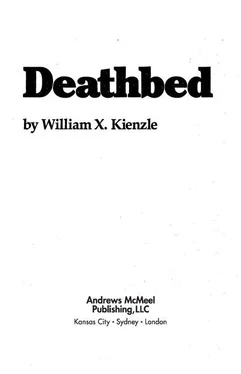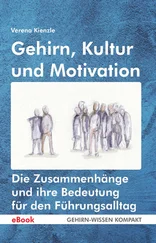Koesler meditatively chewed a morsel of cheeseburger. He was losing his zest for theological inquiry. He had overlooked how frequently moral questions lacked a black-and-white certainty. Most ethical matters, such as the present uterus that was about to give up the ghost, came in tones of gray uncertainty.
“Seems to me,” Koesler swallowed most of the mouthful of cheeseburger, “it seems to me that we’re dealing with, if not a diseased organ, at least one whose usefulness is gone. I mean, from what you say, Doctor, this woman’s uterus can’t sustain another fetal life. From all the cutting that’s had to be done, it’s worn out. So I think we could conclude that the organ has been rendered useless. And that, I would guess, might put it in the same category as an appendix. Whatever our appendix once did, it does no more—it’s a useless organ that no longer serves any positive purpose. Except that it can become infected and be a threat to life. And I think the rule of thumb for surgeons is that should they encounter the appendix during any sort of surgery, they routinely remove it . . . don’t they?”
Dr. Anderson nodded.
“Then I suppose the same can be said for this worn-out uterus. It can no longer serve any positive purpose. It’s just a trauma waiting to happen. So I’d say that it would be morally acceptable the next time you see that womb to remove it.” Koesler fingered some fries. He felt somewhat self-satisfied.
“That’s pretty much the way I figured it, Father,” Anderson said.
Koesler lost some of his smugness. “If that’s the way you had it figured, what in the world was the purpose of asking my opinion?”
“Well, you see, Father, I just got done talking over that part of the decision with Mr. Haroldson here, just to make sure it would be okay to do the hysterectomy. But that was preliminary to the other more pertinent question I had just posed to Mr. Haroldson right before you came to the table.”
“And that was . . .?”
“If it was okay to do the hysterectomy, then wouldn’t it be preferable just to tie the woman’s tubes? That way we would isolate the uterus. She would never get pregnant again and we would avoid major surgery in favor of very minor surgery.”
Koesler glanced at Haroldson, who was sitting back wearing a large smile as if waiting to see if the priest could guess the correct answer. Koesler hated to be put in this position. It was as if he’d been tricked. He’d settled a problem that had already been settled. For no accountable reason, he felt as if he had passed some juvenile test and now was being put through a similar, but higher-level exam.
“Apparently,” said Koesler, “you came down here to ask Mr. Haroldson’s opinion. Why don’t you do that?”
“Oh, no, Father,” said the still-smiling Haroldson, “you’re the designated expert on theological matters. Why, young Dr. Anderson is in luck that you chanced to join us.”
I didn’t “chance” to join you, Koesler thought. You invited me to join you, you curmudgeon.
Anderson seemed to be playing the role of monkey in the middle. By this time, he didn’t much care which of them fielded the question.
Koesler inserted a single strand of fried potato in his mouth and thought. “Tie the tubes, eh?” he said. “It makes sense to me. And it might make glorious sense to the poor woman.”
“Then you think it would be morally acceptable to perform a tubal ligation!” Haroldson more challenged than questioned.
Koesler felt a moment of embarrassment as if he had given an incorrect answer in class. But he recovered quickly. “Well, yes. However you wish to figure it; a part for the whole, if you will. If it’s acceptable to perform a hysterectomy, it seems equally, if not more, acceptable to perform a lesser operation for the same purpose. The idea is this woman shouldn’t chance being pregnant again. Or, rather, that she can no longer depend on her womb to sustain a fetal life.”
“You’d allow that even though there is nothing whatsoever wrong with the Fallopian tubes!” Once again, Haroldson put an audible exclamation mark at the end of what might have been an honest question.
“Yes, I think so. It serves the same purpose and certainly makes more sense than a hysterectomy. As the Doctor here has said, it’s a trade of minor surgery for major. I think it’s the obvious conclusion.”
“And how would you justify that theologically, Father?” As time passed, Haroldson’s questions became more clearly a series of challenges. The plaster-of-paris smile began to fade as well.
“Justify it? What are you driving at?”
“What principle in moral theology would justify your conclusion, is what I’m driving at. Sounds like situation ethics to me!” It was evident from Haroldson’s inflection that he considered situation ethics a pejorative term.
Anderson glanced at his watch. Two things were certain: He had to get back to his hospital duties and his procedural dilemma had become a bone of contention between Haroldson and Koesler. “If you don’t mind, I’ll just get back to my rounds. I’ll get back in touch with you both later and find out what you decided.”
Anderson left the table. As far as Haroldson and Koesler were concerned it was as if the Doctor had never been there.
“Well, I’ll admit that, while I gave the uterus business some ‘theological’ consideration, the opinion on the tubes was sort of off the top of my head. But it certainly did not spring from situation ethics. I’m afraid I can’t subscribe to a school where all morality is weighed by an intention to do the ‘loving’ thing.”
“Well,” Haroldson said, “that’s refreshing. But then, may I ask what theological consideration you used to justify the original hysterectomy?”
For some reason, Haroldson seemed determined to keep Koesler in a pupil-teacher position.
“I suppose,” Koesler replied, “that would be the principle of the double effect.”
“You mean,” Haroldson corrected, “the principle of the indirect voluntary, of course.”
Damn, thought Koesler; he’s right. But he’s also nit-picking. Indirect voluntary was but the generic term under which fell the principle of the double effect. In either case, one dealt with a consequence that was not directly willed. Specifically, in the double effect, one posited an action from which flowed two distinct effects, one of which was “evil.” To be justified in traditional Catholic theology, the action must be good, or at least indifferent. The immediate consequence of the action must be good and the good must outweigh the evil of the secondary consequence, which, in turn, is not directly desired or willed but only permitted.
That, in a nutshell, was the principle of the indirect voluntary and its firstborn child, the principle of the double effect. And the insistence on a reference to the generic term was an indication to Koesler that Haroldson could be a difficult person with whom to do business.
“Yes,” Koesler admitted with little grace, “you’re right. It’s the principle of the indirect voluntary.”
“Exactly. The operation is not only warranted and good, it will happen of necessity because of the Caesarean delivery. The first and immediate effect of the surgery will be the removal of a worn-out, tired, and ineffective organ. And that is good, and it outweighs the contraceptive effect, which is not directly willed, but only tolerated.”
“Uh-huh.” No doubt about it, Koesler was becoming testy.
“And you feel the same reasoning applies to a tubal ligation in this case?” Haroldson made it seem a rhetorical question to which Koesler was about to wrongly respond.
“Yes, I do,” Koesler replied, giving, by Haroldson’s standards, the wrong answer.
Читать дальше












